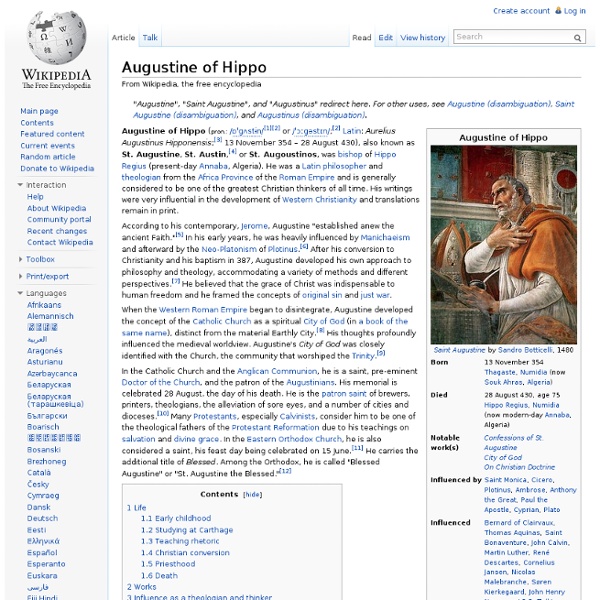Montesquieu
French social commentator and political thinker Charles-Louis de Secondat, Baron de La Brède et de Montesquieu (;[2] French: [mɔ̃tɛskjø]; 18 January 1689 – 10 February 1755), generally referred to as simply Montesquieu, was a French judge, man of letters, and political philosopher. He is the principal source of the theory of separation of powers, which is implemented in many constitutions throughout the world. He is also known for doing more than any other author to secure the place of the word "despotism" in the political lexicon.[3] His anonymously-published The Spirit of Law in 1748, which was received well in both Great Britain and the American colonies, influenced the Founding Fathers in drafting the United States Constitution. Biography
Jean-Jacques Rousseau
Genevan philosopher, writer and composer Jean-Jacques Rousseau (, ;[1] French: [ʒɑ̃ʒak ʁuso]; 28 June 1712 – 2 July 1778) was a Genevan philosopher, writer and composer. His political philosophy influenced the progress of the Enlightenment throughout Europe, as well as aspects of the French Revolution and the development of modern political, economic and educational thought.
Giambattista Vico
Giambattista Vico (born Giovan Battista Vico /ˈviːkoʊ/, Italian: [ˈviko]; 23 June 1668 – 23 January 1744) was an Italian political philosopher and rhetorician, historian and jurist, of the Age of Enlightenment. He criticized the expansion and development of modern rationalism, was an apologist for Classical Antiquity, a precursor of systematic and complex thought, in opposition to Cartesian analysis and other types of reductionism, and was the first expositor of the fundamentals of social science and of semiotics. The Latin aphorism Verum esse ipsum factum ("What is true is precisely what is made") coined by Vico is an early instance of constructivist epistemology.[1][2] He inaugurated the modern field of the philosophy of history, and, although the term philosophy of history is not in his writings, Vico spoke of a “history of philosophy narrated philosophically. Biography[edit] The rhetoric and humanism of Vico[edit]
Joseph de Maistre
Joseph-Marie, Comte de Maistre (French: [də mɛstʁ];[2] 1 April 1753 – 26 February 1821[3]) was a French-speaking Savoyard philosopher, writer, lawyer, and diplomat, who advocated social hierarchy and monarchy in the period immediately following the French Revolution.[4] Despite his close personal and intellectual ties with France, Maistre was throughout his life a subject of the King of Piedmont-Sardinia, whom he served as member of the Savoy Senate (1787–1792), ambassador to Russia (1803–1817),[5] and minister of state to the court in Turin (1817–1821).[6] A key figure of the "Counter-Enlightenment",[7] Maistre regarded monarchy as both a divinely sanctioned institution and as the only stable form of government.[8] He called for the restoration of the House of Bourbon to the throne of France and for the ultimate authority of the Pope in temporal matters. Biography[edit] Portrait by Swiss painter Félix Vallotton, from La Revue blanche, 1er semestre, 1895.
Louis Gabriel Ambroise de Bonald
Louis Gabriel Ambroise, Vicomte de Bonald (2 October 1754 – 23 November 1840), was a French counter-revolutionary[1] philosopher and politician. Mainly, he is remembered for developing a set of social theories that exercised a powerful influence in shaping the ontological framework from which French sociology would emerge.[2][3][4][5] Life[edit] Bonald came from an ancient noble family of Provence. He was educated at the Oratorian college at Juilly,[6] and after serving with the Artillery, he held a post in the local administration of his native province.
Julien-Léopold Boilly
Lithography by Julien Léopold Boilly : Cortège de l'empereur de Chine (Procession of the emperor of China). 1869 Julien-Léopold Boilly (30 August 1796, Paris – 14 June 1874), also known as Jules Boilly, was a French artist noted for his album of lithographs Iconographie de l'Institut Royal de France (1820-1821) and his booklet Album de 73 Portraits-Changés Aquarelles des Membres de I’Institute (1820) containing watercolor caricatures of seventy-three famous mathematicians, in particular French mathematician Adrien-Marie Legendre, the only known portrait of him. Jump up ^ Henry Harrisse, L.-L.
Gottfried Wilhelm Leibniz
German mathematician and philosopher Gottfried Wilhelm (von) Leibniz[a][b] (;[11] German: [ˈɡɔtfʁiːt ˈvɪlhɛlm fɔn ˈlaɪbnɪts][12][13] or [ˈlaɪpnɪts];[14] 1 July 1646 [O.S. 21 June] – 14 November 1716) was a prominent German polymath and one of the most important logicians, mathematicians and natural philosophers of the Enlightenment. As a representative of the seventeenth-century tradition of rationalism, Leibniz developed, as his most prominent accomplishment, the ideas of differential and integral calculus, independently of Isaac Newton's contemporaneous developments.[15] Mathematical works have consistently favored Leibniz's notation as the conventional expression of calculus.[citation needed] It was only in the 20th century that Leibniz's law of continuity and transcendental law of homogeneity found mathematical implementation (by means of non-standard analysis). He became one of the most prolific inventors in the field of mechanical calculators. Biography[edit]
Tacitus
Roman senator and historian Publius (or Gaius) Cornelius Tacitus ( TASS-it-əs, Classical Latin: [ˈtakɪtʊs]; c. AD 56 – c. 120) was a senator and a historian of the Roman Empire. Tacitus is considered to be one of the greatest Roman historians.[1][2] He lived in what has been called the Silver Age of Latin literature, and is known for the brevity and compactness of his Latin prose, as well as for his penetrating insights into the psychology of power politics. Life[edit]
Jacques-Bénigne Bossuet
Court preacher to Louis XIV of France, Bossuet was a strong advocate of political absolutism and the divine right of kings. He argued that government was divine and that kings received their power from God. He was also an important courtier and politician.



